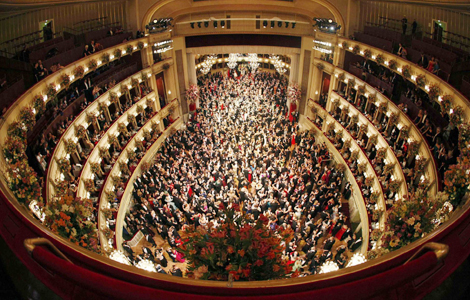City changes tax policy on housing
Updated: 2012-02-18 10:43
By Wang Ying (China Daily)
|
|||||||||
SHANGHAI - The Shanghai city government is offering lower taxation for the average home purchase after revising the standards for "ordinary" houses on Thursday.
However, experts are cautious about whether the new standards will help "wait-and-see" homebuyers make faster decisions.
An apartment located within the city's Inner Ring Road and priced at less than 3.3 million yuan ($529,000) will be defined as ordinary houses, according to an announcement from the municipal government on Thursday.
Similarly, houses located between the Inner Ring Road and the Outer Ring Road and priced at less than 2 million yuan, and those located outside the Outer Ring Road and at a cost of less than 1.6 million yuan will all be regarded as ordinary houses after March 1.
The current standard for ordinary housing was framed in November 2008.
According to the framework, houses located within the Inner Ring Road and priced at less than 2.45 million yuan, those between the Inner Ring Road and the Outer Ring Road and costing less than 1.4 million yuan, and those outside the Outer Ring Road and priced at no more than 0.98 million yuan are designated as ordinary houses.
Over the past three years, the city's home prices have changed a lot, and that means a large number of houses no longer belong to the current ordinary house standard. "This criteria adjustment serves the purpose of keeping up with the actual market changes," said the announcement.
The change in criteria increases the proportion of ordinary houses from less than 20 percent of the city's total new-build houses to more than 60 percent. More than 80 percent of existing homes will fall into the new standards, said Huang Hetao, an analyst from Century 21 China Real Estate LLC's Shanghai regional market research department.
Compared with the existing regulations, the new standards will save total tax of between 3 and 6 percent of the prices for both homebuyers and sellers.
"Considering Beijing's experience, Shanghai's trading volume is expected to rise more than 20 percent," said Huang.
But Chen Sheng, deputy director of the China Index Academy in Shanghai, said it is hard to believe that transaction volume will rise purely because of a reduction in tax.
Related Stories
Taxes levied on unused houses proposed 2005-03-08 14:38
Unused house taxes proposed to curb speculation 2005-03-09 09:08
New rules to support housing tax 2011-02-21 07:33
Tax only raises cost of housing 2007-07-23 08:57
- Apple suppliers improve: audit
- China's social financing plunges in Jan
- Railway construction getting back on track
- Haier sets up Asia HQ in Japan
- China Guodian's 2011 profits hit 6b yuan
- US firms prepare to expand business in China
- Exports face difficult outlook in Q1
- Delegations sign record-setting soybean deals









